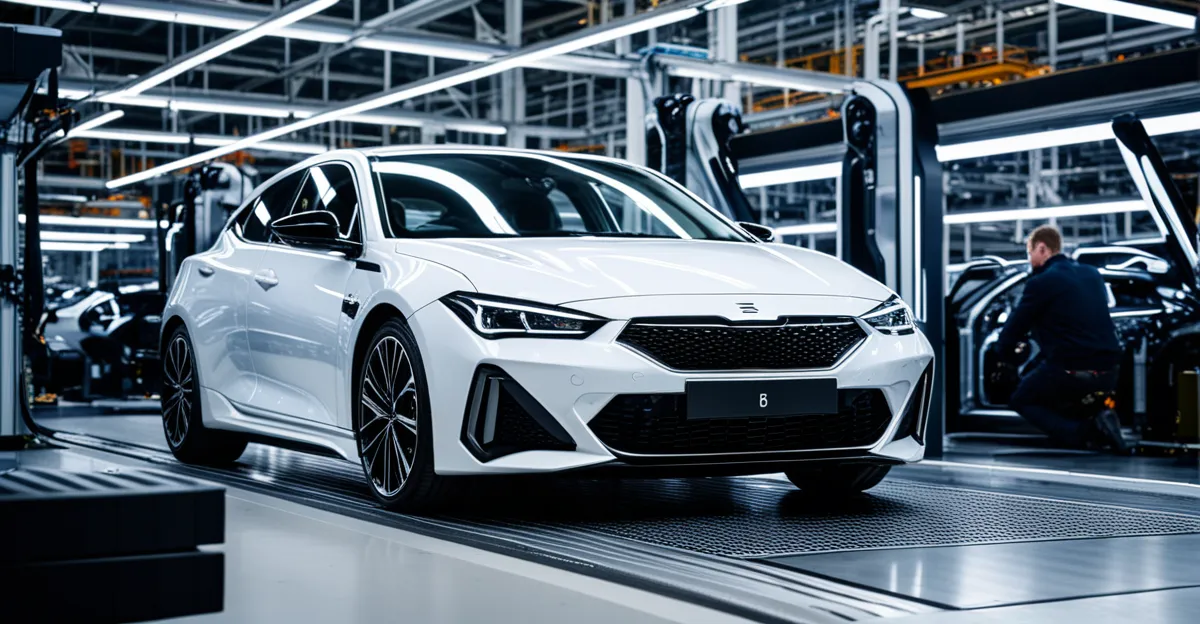Major Technological Innovations Transforming UK Automotive Manufacturing
The UK automotive manufacturing sector is undergoing a profound transformation powered by technological innovations such as artificial intelligence, automation, and robotics. These technologies form the foundation of Industry 4.0, representing the fusion of digital and physical systems to optimise production. Artificial intelligence is leveraged for real-time decision-making and predictive maintenance, reducing downtime and enhancing product quality. Automation and robotics increase manufacturing speed and precision, particularly in complex assembly processes.
Digital twins, virtual replicas of physical assets and processes, are pivotal in allowing manufacturers to simulate and refine production lines before implementation, cutting costs and minimizing errors. Furthermore, UK manufacturers are progressively integrating electric vehicle (EV) technology into their portfolios, positioning themselves for the growing demand for sustainable transport.
In the same genre : What Are the Latest Advancements in UK’s Automotive Technology?
Prominent automotive companies in the UK harness these innovations to increase agility and responsiveness in their manufacturing operations. This integration of cutting-edge technologies not only improves efficiency but also future-proofs the sector against global competition and evolving market needs. In sum, UK automotive manufacturing is rapidly evolving through these smart solutions that enhance both productivity and sustainability.
Impact on Production Processes and Efficiency
Industry 4.0 introduces digital twins and virtual prototyping as game-changers in UK automotive manufacturing. These technologies create exact virtual models of production lines, enabling manufacturers to simulate and optimise workflows before physical deployment. This capability significantly enhances production efficiency by reducing costly trial-and-error in real environments.
This might interest you : How are autonomous vehicles transforming the UK automotive industry?
Robotics and automation lead the charge in increasing speed and precision. Robotics in automotive assembly ensures consistent quality and flexible adaptation to new models, reducing human error. Automation synchronises repetitive tasks with data-driven control systems, facilitating smoother operations and shorter cycle times. This results in substantial waste reduction and minimized downtime.
Process innovation leverages real-time data analytics to monitor performance and predict maintenance needs. Smart manufacturing systems integrate sensors and software that continuously optimize production conditions, empowering UK manufacturers to maintain agility and scale efficiently.
Together, these innovations in production efficiency, digital twins, and robotics are transforming vehicle manufacturing into a responsive, highly productive system aligned with Industry 4.0 principles. This yields better resource use, improved output quality, and a stronger competitive edge on the global stage.
Workforce Transformation and Skills Development
The rise of automation, robotics, and artificial intelligence in UK automotive manufacturing is radically reshaping workforce roles. Routine manual tasks are increasingly automated, pushing workers towards overseeing complex systems and troubleshooting. This shift creates urgent demand for advanced digital skills and technical knowledge, essential for maintaining sophisticated Industry 4.0 operations.
Upskilling automotive workers is now a strategic priority. Continuous learning programs focus on enhancing proficiency in robotics operation, AI-based analytics, and smart manufacturing software. This ensures the workforce remains adaptable and capable within a technology-driven environment. Collaborations between UK manufacturers and educational institutions strengthen these initiatives by aligning curricula with real industry needs.
Labour market transformations include growing opportunities in system maintenance, data analysis, and cyber-physical system management, contrasting traditional assembly line roles. Employers seek candidates who combine mechanical expertise with digital competence, underlining the importance of interdisciplinary skills development.
Effectively managing this workforce evolution supports the sector’s competitiveness and innovation capacity. It facilitates seamless integration of new technological innovations, safeguarding the UK’s position as a leader in advanced automotive manufacturing.








